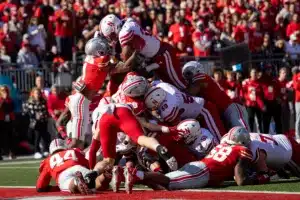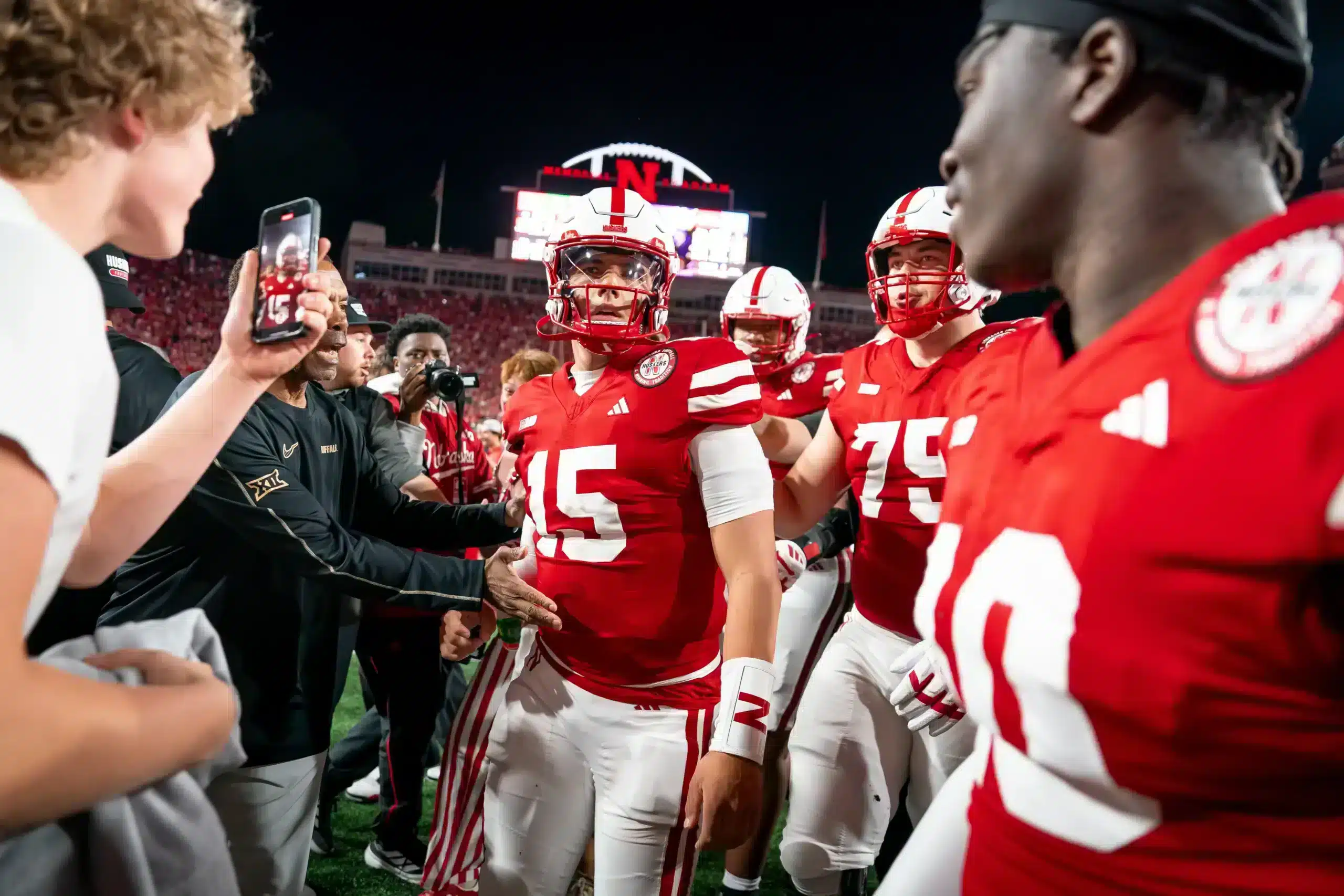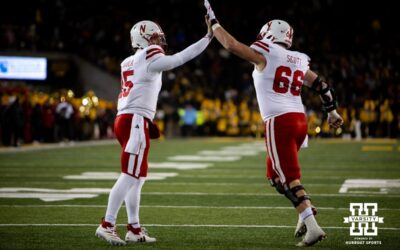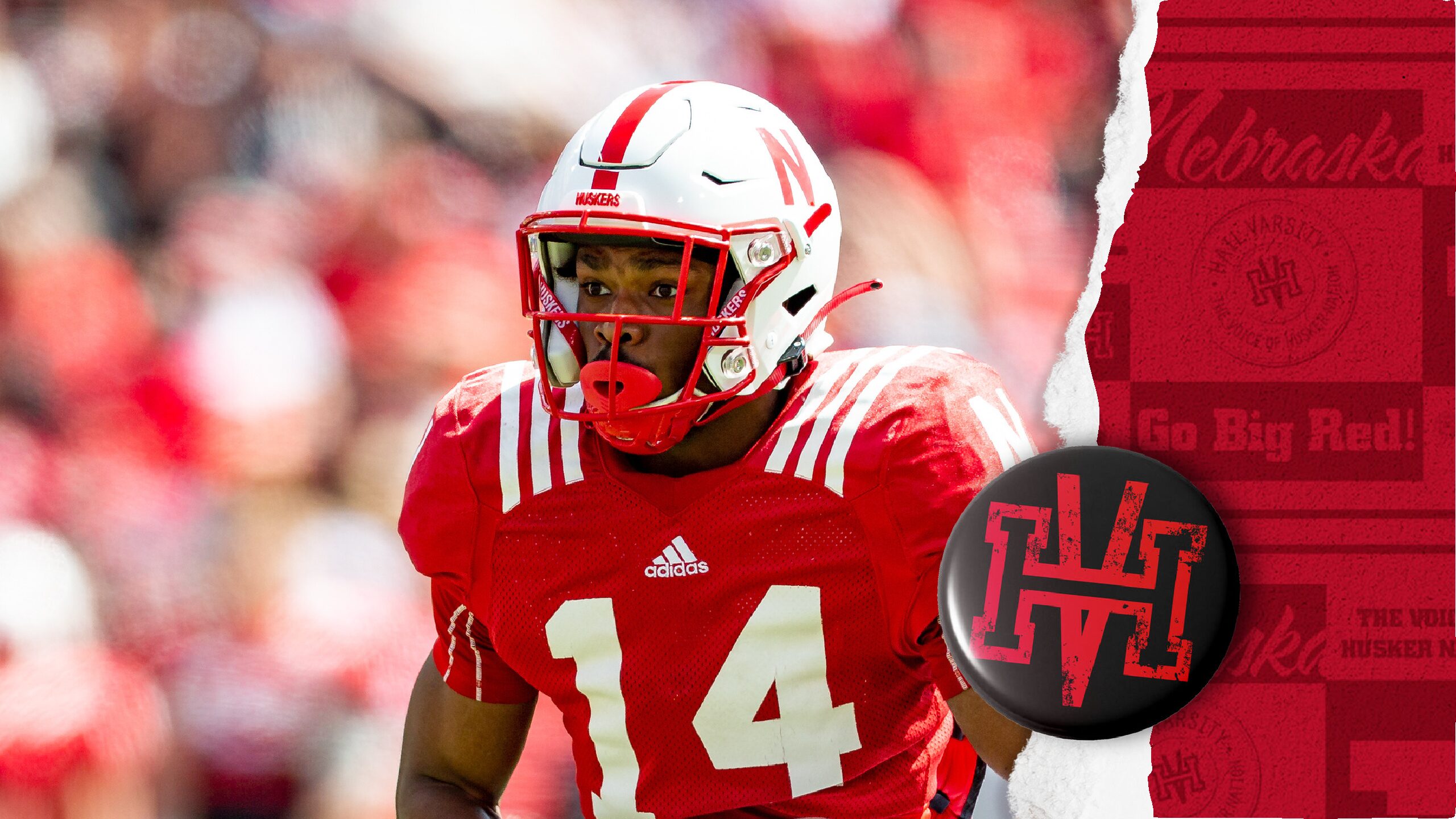As Nebraska football welcomes UCLA to Memorial Stadium for the first time as Big Ten opponents, both teams look to define their season trajectories. The Huskers are coming off a close battle with Ohio State, where their defense stood tall, while UCLA enters with momentum from its first conference victory as a Big Ten member.
Nebraska’s Defensive Stand Against Ohio State Sparks Confidence
After holding Ohio State to a mere 64 rushing yards, Nebraska’s defense enters this game with renewed confidence. The Huskers’ defensive front, led by players like Jimari Butler and M.J. Sherman, proved challenging for Ohio State’s offensive line. Head coach Matt Rhule and his team look to replicate that intensity against UCLA, emphasizing relentless pressure and effective tackling in space.

Nebraska Football running back Dante Dowdell (23) falls short of the touchdown against the Ohio State Buckeyes during a college football game Saturday, October 26, 2024, in Columbus, Ohio. Photo by John S. Peterson.
Key Takeaway:
Nebraska’s defensive strategy relies on containing UCLA’s quick-passing offense. Tackling in open space will be crucial, given UCLA’s reliance on running backs to create yardage on short passes.
UCLA’s Tough Road So Far: A Stronger Team than Their Record Shows
Though UCLA’s record may seem underwhelming, they have faced one of the toughest schedules in the nation, currently ranked as the fourth most difficult. After games against powerhouses like LSU, Oregon, and Penn State, UCLA demonstrated resilience and competitiveness, securing their first conference win against Rutgers. DeShaun Foster’s disciplined approach has shaped UCLA into a team that values process over outcome, making them a formidable opponent despite their current standings.
Key Takeaway:
Nebraska cannot underestimate UCLA’s potential, as the Bruins are playing better than their record suggests. Coach Rhule will need to prepare the Huskers to counter UCLA’s adaptable offense, which relies on quick adjustments and a fast-paced rhythm.
Nebraska’s Offensive Strategy: Exploiting UCLA’s Weaknesses
Nebraska’s offense will likely aim for a more versatile approach against UCLA’s defense, which has struggled to limit opponents on third down, allowing a high conversion rate of 57%. To maintain momentum, Nebraska may utilize more passing on early downs to open up the running game and catch UCLA off guard. This approach can prevent the Bruins’ defense from settling into their rhythm and help Nebraska establish control over the game.
Key Takeaway:
Third downs will be pivotal for both teams. Nebraska’s success will depend on its ability to extend drives, while defensively, the Huskers need to keep UCLA off the field by minimizing third-down conversions.
Returning to Memorial Stadium: The Boost of a Home Crowd
This game marks Nebraska’s return to Memorial Stadium after nearly a month on the road, and the Huskers are eager to play before their home crowd. The players and coaching staff have highlighted the importance of the environment, which could play a significant role in maintaining their momentum and focus.
Key Takeaway:
With the energy of Memorial Stadium behind them, Nebraska football has a chance to capitalize on the home-field advantage. The atmosphere could be a decisive factor as they face a UCLA team still adapting to Big Ten dynamics.
Final Thoughts
Nebraska’s matchup with UCLA represents more than just another game—it’s a chance for the Huskers to reinforce their identity in the Big Ten and prove that their defensive grit and offensive adaptability can translate to consistent success. With Nebraska’s defense showing promise and the offense poised to exploit UCLA’s third-down vulnerabilities, this game has all the ingredients for a memorable showdown.
Key Takeaways:
- Defensive Consistency: Nebraska’s defensive pressure and tackling in space will be crucial against UCLA’s quick-passing offense.
- Exploiting Third Downs: Nebraska must leverage UCLA’s struggles on third down to maintain control of the game.
- Home Advantage: Returning to Memorial Stadium provides a morale boost and can be a defining factor in Nebraska’s performance.
As Nebraska football looks to build on its strengths and UCLA continues to develop under a challenging schedule, this game promises a test of skill, preparation, and resilience for both sides.
Nebraska Football Preview with Avarie Howard and Damon Benning





